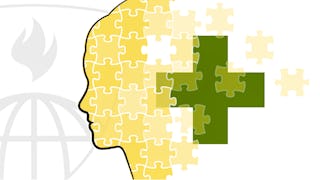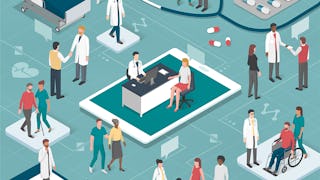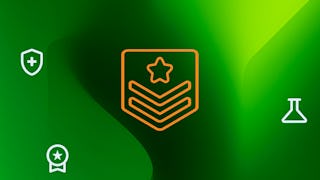Health
Most popular
 Status: PreviewPreviewY
Status: PreviewPreviewYYale University
Course
 Status: PreviewPreviewS
Status: PreviewPreviewSStanford University
Course
 Status: PreviewPreviewW
Status: PreviewPreviewWWesleyan University
Course
 Status: PreviewPreviewD
Status: PreviewPreviewDDuke University
Course
Trending now
 Status: PreviewPreviewY
Status: PreviewPreviewYYale University
Course
 Status: Free TrialFree Trial
Status: Free TrialFree TrialSpecialization
 Status: Free TrialFree TrialM
Status: Free TrialFree TrialMMedCerts
Specialization
 Status: Free TrialFree TrialM
Status: Free TrialFree TrialMMedCerts
Specialization
Online degrees
 P
PPontificia Universidad Católica de Chile
Earn a degree
Degree
Filter by
LanguageRequired *
The language used throughout the course, in both instruction and assessments.
Learning ProductRequired *
LevelRequired *
DurationRequired *
SkillsRequired *
SubtitlesRequired *
EducatorRequired *
All results
 Status: PreviewPreviewY
Status: PreviewPreviewYYale University
Skills you'll gain: Psychology, Human Development, Clinical Psychology, Mental Health, Psychiatry, Human Learning, Child Development, Neurology, Culture, Social Sciences, Critical Thinking, Scientific Methods, Problem Solving
4.9·Rating, 4.9 out of 5 stars32K reviewsBeginner · Course · 1 - 3 Months
 Status: PreviewPreviewS
Status: PreviewPreviewSStanford University
Skills you'll gain: Grant Writing, Peer Review, Technical Writing, Technical Communication, Writing, Scientific Methods, Journals, Editing, Grammar, Research, Proofreading, Healthcare Ethics, Media and Communications
4.9·Rating, 4.9 out of 5 stars9.7K reviewsBeginner · Course · 1 - 3 Months
 Status: PreviewPreviewS
Status: PreviewPreviewSStanford University
Skills you'll gain: Cooking, Meal Planning And Preparation, Health Promotion, Health Education, Nutrition and Diet, Public Health, Behavior Management, Cultural Diversity, Health Informatics, Chronic Diseases
4.7·Rating, 4.7 out of 5 stars34K reviewsBeginner · Course · 1 - 3 Months
 Status: PreviewPreviewJ
Status: PreviewPreviewJJohns Hopkins University
Skills you'll gain: Triage, Crisis Intervention, Active Listening, Emergency Response, Trauma Care, Psychological Evaluations, Interpersonal Communications, Personal Care, Mental Health, Stress Management, Patient Referral
4.8·Rating, 4.8 out of 5 stars20K reviewsMixed · Course · 1 - 3 Months
 Status: Free TrialFree TrialS
Status: Free TrialFree TrialSStanford University
Skills you'll gain: Healthcare Ethics, Pharmaceuticals, Health Systems, Healthcare Industry Knowledge, Managed Care, Health Care, Medical Billing, Health Care Administration, Health Care Procedure and Regulation, Medicaid, Medicare, Health Policy, Hospital Experience, Value-Based Care
4.8·Rating, 4.8 out of 5 stars1.5K reviewsBeginner · Course · 1 - 3 Months
 Status: Free TrialFree Trial
Status: Free TrialFree TrialSkills you'll gain: Medical Terminology, Revenue Cycle Management, Medical Billing, Medical Billing and Coding, Conflict Management, Anatomy, Pathology, Medical Coding, Cultural Responsiveness, Patient Education And Counseling, Patient-centered Care, Electronic Medical Record, Professionalism, Health Care Procedure and Regulation, Health Information Management and Medical Records, Professional Development, Medical Records, Time Management, Physiology, Payment Processing
4.8·Rating, 4.8 out of 5 stars1.7K reviewsBeginner · Specialization · 3 - 6 Months
 Status: Free TrialFree TrialN
Status: Free TrialFree TrialNNational Academy of Sports Medicine
Skills you'll gain: Goal Setting, Exercise Science, Kinesiology, Nutrition and Diet, Nutrition Counseling, Smart Goals, Health Assessment, Sports Medicine, Human Musculoskeletal System, Preventative Care, Public Health and Disease Prevention, Nutritional Assessment, Respiration, Physiology, Neurology, Automated External Defibrillator, Rehabilitation, Cardiopulmonary Resuscitation (CPR), Coaching, Health And Wellness Coaching
4.7·Rating, 4.7 out of 5 stars320 reviewsBeginner · Professional Certificate · 3 - 6 Months
 Status: Free TrialFree TrialM
Status: Free TrialFree TrialMMedCerts
Skills you'll gain: Medical Terminology, Pharmacy Experience, Medication Dispensation, Pharmacist Assistance, Medical Prescription, Pharmacology, Conflict Management, Pharmacy Operations, Anatomy, Pathology, Pharmacy Information System, Cultural Responsiveness, Patient Safety, Patient Education And Counseling, Patient-centered Care, Pharmacy, Professionalism, Medication Administration, Medical Records, Physiology
4.7·Rating, 4.7 out of 5 stars1.3K reviewsBeginner · Specialization · 3 - 6 Months
 Status: Free TrialFree TrialM
Status: Free TrialFree TrialMMedCerts
Skills you'll gain: Medical Terminology, Patient-centered Care, Conflict Management, Anatomy, Pathology, Informed Consent, Cultural Responsiveness, Basic Patient Care, Patient Communication, Patient Education And Counseling, Nursing Basics, Professionalism, Professional Development, Medical Records, Toileting, Dignity in Care, Medical Privacy, Physiology, Cell Biology, Communication
4.8·Rating, 4.8 out of 5 stars1.2K reviewsBeginner · Specialization · 1 - 3 Months
 Status: PreviewPreviewD
Status: PreviewPreviewDDuke University
Skills you'll gain: Neurology, Physiology, Anatomy, Cell Biology, Psychology, Pathology, Molecular Biology
4.9·Rating, 4.9 out of 5 stars3.1K reviewsAdvanced · Course · 3 - 6 Months
 Status: Free TrialFree TrialA
Status: Free TrialFree TrialAAAPC
Skills you'll gain: Medical Billing, Denial Management, ICD Coding (ICD-9/ICD-10), Patient Registration, Billing, Medical Billing and Coding, Medical Coding, CPT Coding, Accounts Receivable, Payment Processing and Collection, Medical Office Procedures, Utilization Management, Medical Records, Billing & Invoicing, Insurance, Medicare, Health Insurance Portability And Accountability Act (HIPAA) Compliance, Health Systems, Healthcare Industry Knowledge, Regulatory Compliance
4.6·Rating, 4.6 out of 5 stars158 reviewsBeginner · Professional Certificate · 3 - 6 Months
 Status: Free TrialFree Trial
Status: Free TrialFree TrialSkills you'll gain: Good Clinical Practices (GCP), Informed Consent, Institutional Review Board (IRB), Clinical Research Ethics, Clinical Research Coordination, Clinical Research, Clinical Trials, Clinical Data Management, Drug Development, Patient Education And Counseling, Record Keeping, Clinical Documentation, Regulatory Compliance, Document Management, Health Equity, Electronic Medical Record, Patient Communication, Risk Management
4.7·Rating, 4.7 out of 5 stars713 reviewsBeginner · Specialization · 1 - 3 Months
New releases
 Status: Free TrialFree Trial
Status: Free TrialFree TrialSpecialization
 Status: Free TrialFree TrialM
Status: Free TrialFree TrialMMedCerts
Course
 Status: Free TrialFree TrialA
Status: Free TrialFree TrialAAmerican Council on Exercise
Professional Certificate
 Status: Free TrialFree TrialA
Status: Free TrialFree TrialAAmerican Council on Exercise
Course
What brings you to Coursera today?
¹ Median salary and job opening data are sourced from Lightcast™ Job Postings Report. Content Creator, Machine Learning Engineer and Salesforce Development Representative (1/1/2024 - 12/31/2024) All other job roles (7/1/2024 - 7/1/2025)











